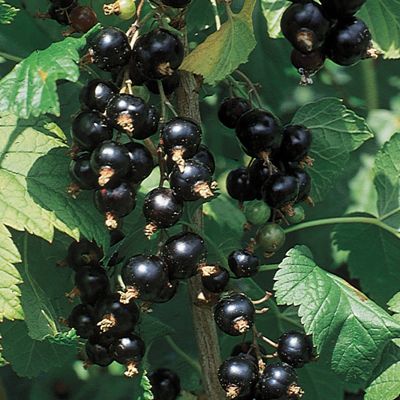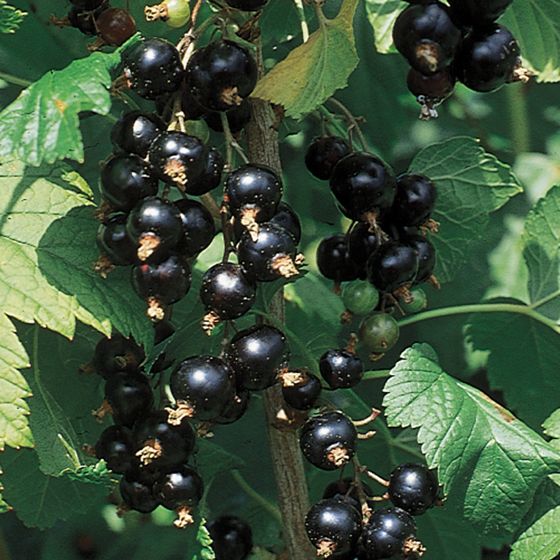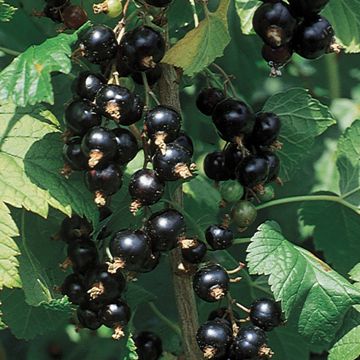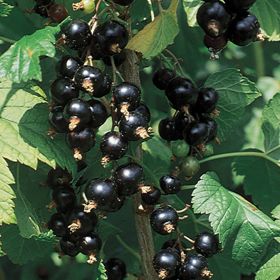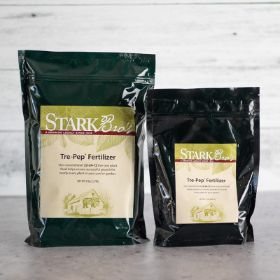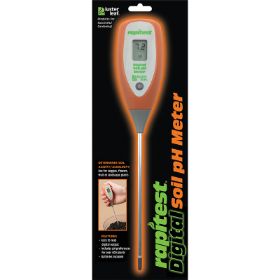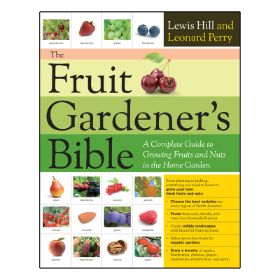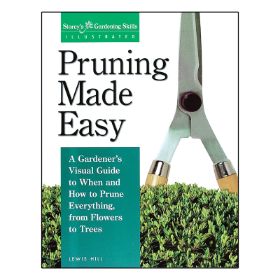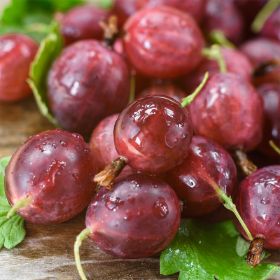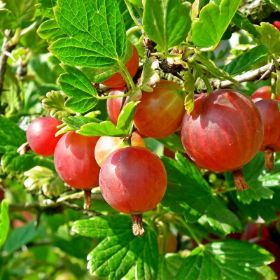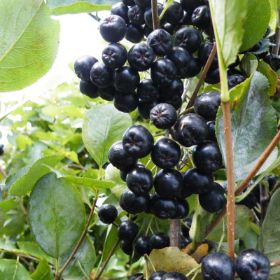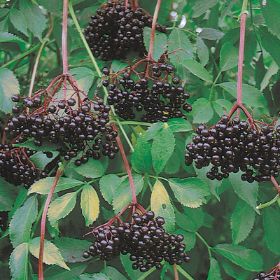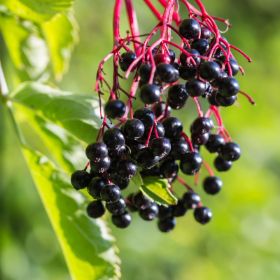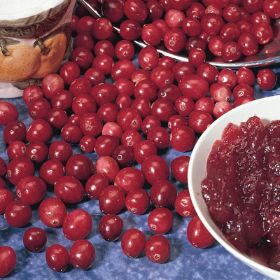Black Consort Currant Plant
Description
A handsome, compact fruiting hedge, the Black Consort Currant (Ribes nigrum ‘Consort’) is prized for its rich, tangy berries and disease resistance. This upright shrub produces medium-sized black currants that grow in clusters, ripening in June or July. The berries are exceptionally high in vitamin C and antioxidants, making them a nutrient-rich superfood.
Why Grow Black Consort Currant?
- Cold-Hardy & Disease-Resistant – Thrives in USDA Zones 4-8, with natural immunity to white pine blister rust.
- Versatile Uses – Ideal for preserves, jams, juicing, wine, and fruit liqueurs.
- Self-Pollinating – No second plant required, but planting multiple bushes boosts yield.
- Shade-Tolerant – Adapts well to partial shade, though full sun enhances fruit production.
- Compact & Productive – Perfect for small gardens, edible landscapes, or as a fruiting hedge.
Growing Information:
- Sunlight: Prefers full sun to partial shade.
- Soil: Thrives in rich, well-draining soil with a slightly acidic to neutral pH.
- Spacing: Plant 4-6 feet apart for optimal air circulation.
- Watering: Keep soil moist but not waterlogged, especially during fruit development.
- Harvest Time: Ripens in June to July with high yields of flavorful berries.
Order Yours Today!
With its cold hardiness, disease resistance, and delicious, vitamin-packed fruit, the Black Consort Currant is an excellent choice for home gardeners. Shop now and enjoy fresh, homegrown currants this season!
Characteristics
| Bloom Color | White |
| Chill Hours | 800 |
| Fruit Color | Black |
| Fruit Size | Medium |
| Hardiness Zone Range | 4 - 8 |
| Pollination | Self-Pollinating |
| Ripens/Harvest | June/july |
| Shade/Sun | Partial Shade - Full Sun |
| Soil Composition | Loamy |
| Soil Moisture | Well Drained - Average Moistness |
| Soil pH Level | 6.2 - 6.5 |
| Taste | Sweet |
| Texture | Crisp, Firm |
| Years to Bear | 2 - 3 |
Zone Compatibility
This Variety's Zone Range
4 - 8
My Hardiness Zone
?
The USDA hardiness zones offer a guide to varieties that will grow well in certain climates. Each zone corresponds to the minimum winter temperatures experienced in a given area. Make sure that your hardiness zone lies within the zone compatibility range of this variety before ordering.
Pollination
This variety is self pollinating.
In many cases, you may still want to plant pollinating partners to increase the size of your crops, but with self-pollinating varieties doing so is optional. You'll get fruit with only one plant!

